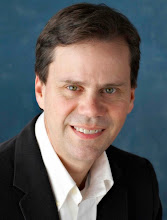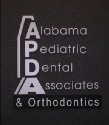(click to enlarge)
Sunday, September 25, 2011
Pediatric Dentist or Pedodontist?
Pedodontist is a word that was used for some time to describe the specialty of dentistry devoted to the treatment of children. "Pedia-"or "Pedo" means child or children; "-dontist" denotes one who studies teeth. The old word was found to be confusing. Some people thought it meant foot doctor or something. The modern accepted term these days is Pediatric Dentist or Pediatric Dentistry. The term was changed a few years ago, but you will still hear the older term. Pediatric Dentistry is an age-defined specialty that provides both primary and comprehensive preventive and therapeutic oral health care for infants and children through adolescence, including those with special health care needs.
I came across google "ngrams" search engine. This searches millions of books published over the years and finds certain terms or phrases. See if you can see when one term fell out of favor and the other is now accepted.
(click to enlarge)
(click to enlarge)
Labels:
Blogging,
Dental School
Subscribe to:
Post Comments (Atom)












16 comments:
I can see why the more accepted term is Pediatric dentist - it does seem like a more intuitive name.
Informative blog! I came to know about a few new things like some people used to think pediatric dentists are foot doctors... Amazing post! Keep sharing such new and interesting things.
Interesting to see the google graphs!
The American Academy of Pediatric Dentistry recommends that children be taken to see a pediatric dentist at least six months after they get their first tooth. It may seem strange to think about taking a child who is under one into a dentist's office' but doing so will help make sure his/her teeth stay healthy and get him/her used to visits that will become a regular part of his life.
Pediatric dentist Victoria
All children need to brush their teeth at least two times a day, at night before bedtime, and in the morning after breakfast. By disturbing and removing the plaque formation twice a day, parents can minimize or eliminate their children's potential for decay. For younger children a parent should brush their teeth using a pea-sized amount of toothpaste. As the child gets older and you see they have the dexterity and patience to properly take care of their teeth, you may give over the task. But do periodically monitor their care. Toothpaste should be approved by the American Dental Association. Toothbrushes should be the proper size, smaller is better than bigger, and always use a soft nylon brush in a circular manner. This will prevent toothbrush abrasion, excessive wear of the enamel at the gum line. Also a toothbrush should be replaced when it is worn, bristles splayed, or after more serious colds, infection, Strep throat, etc.
Infants - Gum pads and teeth should be wiped off with a gauze or washcloth.
Toddlers - Parents should brush their teeth twice a day with a very small amount of toothpaste. Toothpaste has quite a bit of fluoride in it. If the child is allowed to swallow it, this can cause white or brown spots to occur on the developing permanent teeth. Use toothpaste sparingly with young children.
3-6 year olds - Let them brush, supervise them, and do the final brushing to make sure all surfaces of the teeth are cleaned. Also you need to floss their teeth as they get older as the posterior teeth get closer and tighter over time. Make sure they can rinse their mouth so toothpaste doesn't get swallowed.
6 and older - Continue supervision until you are sure they can brush and floss properly.
Graph clearly showing that Pediatric Dentistry is more accepted in these days!!!
Thanks for the post!!!
Great blog with great detail on the graphs!
A pediatric dentist is a dentist who has received additional specialty training in the area of managing children's dental problems. The pediatric dentist specifically deals with those children who may require extensive dental treatment and/or children who are very apprehensive about dental treatment and may require special behavior management techniques in order to accomplish the dental treatment safely and comfortably.
The main goal in the treatment of your child is to provide a positive dental experience. Since the dental experience can be a high anxiety-producing event, children react to anxiety differently than adults. Children can display anxiety in different ways depending on age, preconceived ideas and previous experiences. Once a child becomes apprehensive in the dental setting, it is very difficult to "talk the child out of the anxiety." Reversing a negative dental experience is much more difficult than preventing one.
The use of a mild sedative to relax the child can lower the anxiety level and, therefore, allow them to be more relaxed during the dental procedure. A relaxed child is more apt to listen and understand the explanations of the procedure given by the doctor and his assistants. In addition, less anxious children accept the normal activities and noises around the mouth associated with dental procedures. Tell-Show-Do techniques, explanation and positive reinforcement techniques are all more effective in children if the anxiety level is lowered initially. Therefore, a mild sedative can be a tremendous aid to ensure that a child has a positive experience. A common misconception is that the children are "put to sleep" in the pediatric dental office. Sedative medications are used to help relax the child but at no time is any child "put to sleep." The mild sedative medication merely relaxes the child to lower his/her anxiety levels.
Children Dentist El Paso TX
Thanks for sharing this tool! I use a lot of Google tools like Docs, Analytics, Webmaster Tools, etc. Somehow I overlooked this one :/
Your blog is extremely informative and helpful! Thank you! I came across your site after searching for help after my 2 yr old bumped his tooth which is now starting to darken. I wish we lived close to your practice so that I could bring him to see you. Can you recommend a pediatric dentist in the St. Petersburg FL or Tampa Bay area? Thank you.
Not Tampa, but in Orlando, Dr. John Bishop's group is great. One of our dentists worked there at one time.
Nowadays this kind of dentist seems to be essential. I was just reading a couple of articles that talked about the problem with little kids and their teeth, and how it just keeps on growing. I even have a nephew that has had his fair share of cavities. At what age do Pediatric dentist generally stop treating a child?
The age range for Pediatric Dentistry is usually defined as from birth to age 21, unless one has a special needs situation like cerebral palsy.
I agree, Pediatric Dentist seems much more natural... plus, it makes it much easier for a layperson to understand what we do!
Pediatrics is what I would like to specialize in :)
Thanks for distinguishing between the two, a lot of people mix this up!
Post a Comment